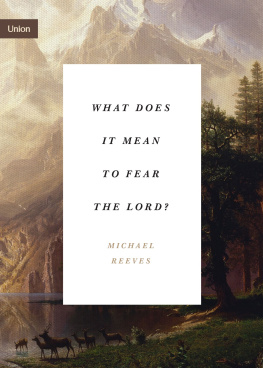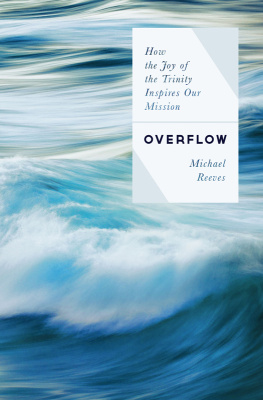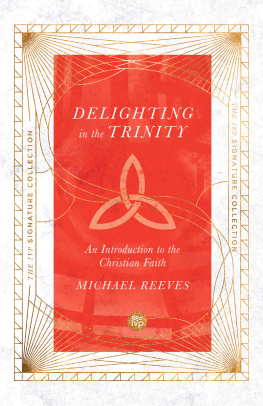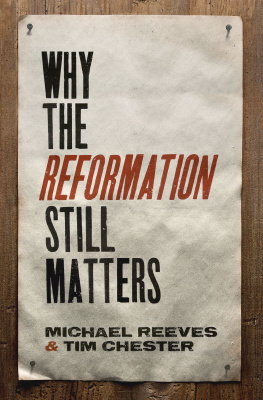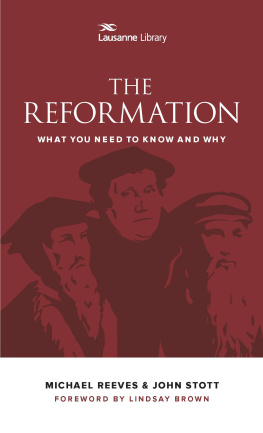Table of Contents
Landmarks
Chapter 1: Do Not Be Afraid!
For a perceptive introduction to this issue, see Michael R. Emlet, Prozac and the Promises of God: The Christian Use of Psychoactive Medication, desiringGod (website), August 22, 2019, https:// www .desiring god .org /articles /prozac -and -the -promises -of -god .
Chapter 2: Sinful Fear
Christopher Hitchens, interview on Hannity & Colmes , Fox News, May 13, 2007.
C. S. Lewis, The Great Divorce (London: Geoffrey Bles, 1946; repr., London: Fount, 1997), 17.
Lewis, The Great Divorce , 18.
Lewis, The Great Divorce , 4647.
Chapter 3: Right Fear
Scofield Reference Bible , 1909 ed., 607n1.
C. H. Spurgeon, A Fear to Be Desired, in The Metropolitan Tabernacle Pulpit Sermons , 63 vols. (London: Passmore & Alabaster, 18551917), 48:495.
John Bunyan, A Treatise on the Fear of God, in The Works of John Bunyan , ed. George Offer, 3 vols. (Glasgow: W. G. Blackie & Son, 1854; repr., Edinburgh: Banner of Truth, 1991), 1:46061.
Spurgeon, A Fear to Be Desired, 494.
Chapter 4: Overwhelmed by the Creator
William Blake, The Tyger (1794).
Isaac Watts, Eternal Power, Whose High Abode (1706).
C. H. Spurgeon, A Fear to Be Desired, in The Metropolitan Tabernacle Pulpit Sermons , 63 vols. (London: Passmore & Alabaster, 18551917), 48:498.
Spurgeon, A Fear to Be Desired, 496.
Chapter 5: Overwhelmed by the Father
Luthers Large Catechism (St. Louis, MO: Concordia, 1978), 70.
C. H. Spurgeons Autobiography, Compiled from His Diary, Letters, and Records, by His Wife and His Private Secretary , vol. 1, 18341854 (Chicago: Curts & Jennings, 1898), 205, my emphasis.
Chapter 6: How to Grow in This Fear
Martin Luther, Luthers Works , vol. 51, Sermons I , ed. Jaroslav Jan Pelikan, Hilton C. Oswald, and Helmut T. Lehmann (St. Louis, MO: Concordia, 1999), 139.
John Bunyan, The Saints Knowledge of Christs Love, in The Works of John Bunyan , ed. George Offer, 3 vols. (Glasgow: W. G. Blackie & Son, 1854; repr., Edinburgh: Banner of Truth, 1991), 2:14.
John Bunyan, A Treatise on the Fear of God, in The Works of John Bunyan , 1:440.
Chapter 8: Eternal Ecstasy
Thomas Chalmers, The Expulsive Power of a New Affection, in Posthumous Works of the Rev. Thomas Chalmers , vol. 6 (New York: Harper & Brothers, 18481850), 253.
Now is a goo d time to put down this book and ask yourself what things you fear. Our fears are highly revealing. What you fear shows what you really love. We fear our children getting hurt because we love them. We fear losing our jobs because we love the security and identity they give us. We fear rejection and criticism because we love approval. Some of these fears are healthy, some are overblown, and some betray deeper sicknesses in our character.
So ask yourself: What do my fears say about me and my priorities, about what I treasure? What do they say about where I am looking for security?
Which do you fear more: being sinful or being uncomfortable? God or man? Being a sinner or being exposed before others as a sinner?
Our fears are like ECG readings, constantly telling us about the state of our hearts.
So, what does it look like when a believer is filled with a right, filial fear of God? Not a cold, dead, outward, hypocritical show of reverential religion, but a heartfelt quaking at the goodness and glory of the Redeemer.
Deeper Communion with God
The fear of the Lord is a heart-level indicator of the warm communion with God that God wants with his children. It is the wondering temperament of those who have been brought to know and enjoy the everlasting mercy of God and who therefore take pleasure in him. Believers who have a right fear of the Lord will bemoan their prayerlessness but will know something of a heartfelt, affectionate prayer life. They will want to know God better and enjoy sweeter and more constant communion with him.
Knowledge and Wisdom
The fear of the L ord is the beginning of knowledge (Prov. 1:7). First, the fear of the Lord brings a true knowledge of God, as Creator and as Redeemer, as majestic and as merciful. Any knowledge of God that is devoid of such fearful wonder is actually blind and barren. The living God is so wonderful, he is not truly known where he is not heartily adored.
But the fear of the Lord is not only the beginning of knowledge of God . It is also the beginning of true knowledge of ourselves. In the light of Gods holiness and majesty I understand how puny, vicious, and pathetic I am. In other words, I do not have a true knowledge of myself if I do not fear God. Without that fear, my self-perception will be wildly distorted by my pride. It is when we are most thrilled with God that our masks slip and we see ourselves for what we really are: creatures, sinners, forgiven, adopted.
The fear of the Lord is also the beginning of wisdom (Prov. 9:10). But it is a very unexpected guide to wisdom. When we look for wisdom, we look to intelligence . We struggle to distinguish between intelligence and wisdom. Which is odd, given how the world is littered with clever fools. We need the fear of God to steer our abilities, and without it, all our abilities are a liability. Take the brilliant young theological thug online: he may just be as bright as he thinks he is, but his untempered ability only makes him more dangerous.
And therein lies a challenge for those conscious of their own ability, and a comfort for all who feel daunted by the talents of others. It is only this wonderful fear of God that can steer us wisely through life. Thisnot IQis the beginning of wisdom. Therefore, says Psalm 115:13,
he will bless those who fear the L ord ,
both the small and the great .
For it is not talent that God blesses so much as the fear of God.
Becoming like God
Those who fear God become like him. For, like a fire in the heart, the fear of the Lord consumes sinful desires, and it fuels holy ones. It brings us to adore God and so loathe sin and long to be truly like him.
Becoming like God must mean becoming happy. God, after all, is the blessed or happy God (1 Tim. 1:11). You naturally expect that the fear of God would make you morose and stuffy, but quite the opposite. Unlike our sinful fears, which make us gloomy, the fear of God has a profoundly uplifting effect: it makes us happy. How can it not when it brings us to know this God?
Along with making us happy, the fear of the Lord makes believers large-hearted, like God. Think of the little story of the prophet Obadiah:
Now the famine was severe in Samaria. And Ahab called Obadiah, who was over the household. (Now Obadiah feared the L ord greatly, and when Jezebel cut off the prophets of the L ord , Obadiah took a hundred prophets and hid them by fifties in a cave and fed them with bread and water.) (1 Kings 18:24 )
Far from making Obadiah self-involved and frosty, the fear of God made him generous and compassionate to those hunted prophets in need.
That large-heartedness is actually the overflow of a tenderheartedness toward God. It means that those who fear God haveto use another much-misunderstood worda jealousy for God. Such righteous jealousy should not be confused with selfish envy: it is a love that will not let go of the beloved or make do with substitutes. As God the Father is jealous for his beloved Son, and as Christ is jealous for his bride, the church, so too those who fear God find in themselves a loving jealousy for God. Adoring him, they cannot abide his glory being diminished or stolen. False teaching will distress them, not because it contradicts their views but because it impugns him . Self-righteousness becomes loathsome to them because of how it steals from the glory of his grace.
From this grows another Christlike quality: humility. So do not become proud, but fear, wrote Paul (Rom. 11:20), for trembling in wonder at God keeps one from trusting in oneself. It is the key to true humility, which is not about trying to think less of yourself or trying to think of yourself less but about marveling more at him. It is the antidote to pride and the prayerlessness that springs from pride. When God is so marvelous in our eyes that we rejoice and tremble, we cannot but praise him and throw ourselves on him in hearty and dependent prayer. We cannot be great in our own eyes. Not only that, but this fear levels and unites us as a church. This fear admits no boasting before God and so admits no elite and no second-class in the church. It also gathers us together in the warm and humble fellowship of a shared love.

